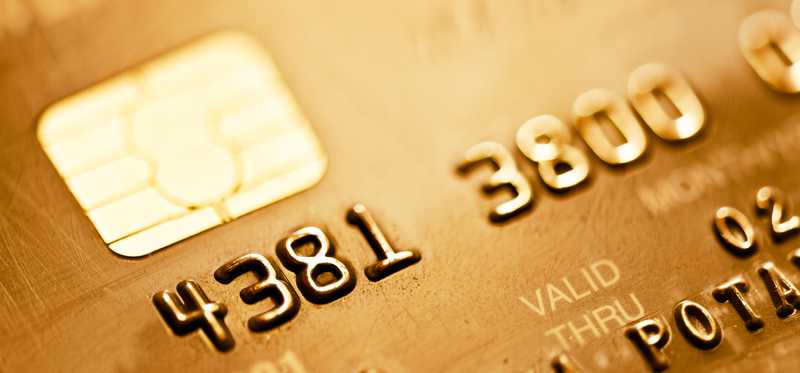7 Ways the Cryptocurrency Bubble Could Burst

7 Ways the Cryptocurrency Bubble Could Burst
Volatility at its finest
One of the biggest business stories of 2017 was the incredible rise of bitcoin (CCC: BTC-USD) and other forms of cryptocurrencies. At the beginning of 2017, the price of bitcoin was still under $1,000 before beginning a meteoric rise that would peak in December at just under $20,000. Soon thereafter, the price of bitcoin and other cryptocurrencies plummeted. In 2018 alone, bitcoin prices started at $12,000, spiked to above $17,000, plummeted back down to just a shade over $7,000, before rising back to $10,000. Other cryptocurrency prices have been just as volatile. Yep, to say cryptocurrencies are redefining volatility is an understatement!
Part of what makes cryptocurrency prices so unstable is that they are exceedingly difficult to value. Unlike stocks or other asset classes, cryptocurrency tokens are not tangible pieces of a business or physical assets that can be measured. Hence, there are no earnings or commodity prices that can be used to fairly gauge how much each cryptocurrency should be worth.
Because of this, opinions still run the gamut of what to expect from cryptocurrencies in the future. True believers, like Xapo CEO Wences Casares, think bitcoin prices could go as high as $1 million while famed investor Warren Buffett believes cryptocurrencies will experience a "bad ending." Who's right? While I can't see the future, click ahead to see seven reasons why the cryptocurrency bubble could burst.
Previous
Next

1. Governments ban cryptocurrencies
One of the biggest reasons the cryptocurrency bubble might burst is that governments could outright ban them. Such a move would not be unprecedented; several smaller countries, including Bangladesh, Bolivia, Ecuador, Kyrgyzstan, Morocco, and Nepal, have already banned bitcoin (CCC: BTC-USD). Also, Vietnam has announced a ban on bitcoin payments.
Bitcoin received a huge boost when Japan officially made bitcoin a legal currency and the Asian country now accounts for about half of the cryptocurrency's global trade volume. But the hand that gives can also take away. If one of the world's major economies ever decides to ban -- not regulate, but ban -- a major cryptocurrency or, even, the entire asset class, prices would plunge. After all, the fact that these are global currencies is a large part of their appeal. Several countries, including China, Russia, and South Korea have already stepped in with heavy-handed regulations (more on that later). Op-eds have been published domestically calling for cryptocurrencies to be shut down.
Cryptocurrency advocates will say that these bans are futile and that, ultimately, cryptocurrencies will be able to operate independently of governmental control or interference. But this misses the point. If one of the world's governments bans a form of cryptocurrency, the market for these assets will tumble as traders and speculators make their way to the exits and the utility and potential of the entire class is reduced.
Previous
Next

2. Governments regulate cryptocurrencies
Okay, so maybe governments won't ban cryptocurrencies outright, but many have begun to step in with heavy regulations. China has already banned initial coin offerings, curbed power to bitcoin miners, and blocked access to all domestic and foreign cryptocurrency exchanges. South Korea has disallowed anonymous accounts from buying and selling cryptocurrencies and will be taxing cryptocurrency exchanges as much as 24%!
Onerous taxes and regulations in some of the world's largest cryptocurrency markets make it difficult for consumers and traders to participate in them. Furthermore, the high tax rates on exchanges almost negate the entire reason for cryptocurrencies in the first place -- cheap financial transactions and movement of money.
Previous
Next

3. Futures trading opens the door for negative sentiment
Thus far, futures trading has been incredibly light on the Cboe Global Markets Inc (NASDAQ:CBOE) and CME Group Inc (NASDAQ:CME) exchanges since trading opened last December, but that doesn't mean they are guaranteed to stay that way forever. This means that, thus far, Wall Street's "smart money" has been reluctant to bet against the price of bitcoin via short-selling or futures contracts. However, if some of Wall Street's heavy hitters begin stepping up to bet against bitcoin, that would place some seriously heavy pressure on the cryptocurrency's price going forward.
ALSO READ: CME Bitcoin Futures: A Better Way to Buy (or Short) Bitcoin?
Previous
Next

4. Lawsuits threaten
One interesting theory posited by fellow Foolish contributor Sean Williams is that cryptocurrency's wild volatility and trading off rumors is a matchbox that could set off a blaze of lawsuits in the near future. Williams notes that when traditional equities dive after an unexpected development, law firms flock to the affected investors and offer litigation as a means to regaining some of the losses. While this has yet to happen, it doesn't take a wild imagination to see it as a possibility for the future either.
Previous
Next

5. It's actually about the blockchain technology
What if we determine that it's not the cryptocurrencies that are important but, rather, the underlying blockchain technology behind them? Mark Cuban has said that blockchain technology could be "at the core of most transactions in the future." Fellow billionaire and serial entrepreneur Richard Branson believes blockchain technology could bring about an economic revolution.
Several financial and technology corporations are already incorporating blockchain technology into their products and services. Broadridge Financial Solutions, Inc. (NYSE: BR) acquired Inveshare, Inc for its blockchain technology assets in September 2016 because its management believes blockchain technology can streamline its proxy voting and equity trade processes. Nasdaq, Inc. (NASDAQ:NDAQ) has used blockchain for processing proxy votes and issuing private shares. Both Microsoft Corporation (NASDAQ:MSFT) and IBM (NYSE:IBM) offer what could almost be described as blockchain-as-a-service offerings, where enterprise customers could use the companies' cloud platforms to build blockchain applications.
If blockchain technology delivers on all the promises of cryptocurrencies, then corporations and individuals would have little reason to buy cryptocurrencies in the future. Essentially, in this scenario, cryptocurrencies would largely become commoditized, with each company able to deliver the speed and efficiencies of cryptocurrency just by using blockchain applications.
Previous
Next

6. It's not worth the energy
The computer equipment required to mine cryptocurrencies, such as bitcoin, take up a lot of energy. How much energy? Well, Wired magazine reported that current bitcoin mining operations worldwide already consume more power than the country of Serbia. Continuing unabated, some experts believe that mining operations will use more electricity than the entire rest of the world by the summer of 2020, just two and a half years away.
To say that could be a problem is an understatement. For starters, there's the sheer cost and burden that will put on the world's power grids, even in developed countries with robust power infrastructures. This, in turn, causes huge concerns for the strain it will put on the environment. I know we already covered regulations in a previous slide, but this massive power consumption could easily attract the disapproving eye of environmental agencies, too.
Previous
Next

7. The existing financial system is just better
Here's something I don't hear said too often, but there must be at least a possibility that society determines that the current financial and payments ecosystem works just fine and doesn't need to be replaced. After all, why do I need to learn how to use a cryptocurrency to buy and sell goods and services when the plastic rectangles residing in my wallet seem to work just fine?
If my credit card is lost, stolen, or breached, I can call my issuing bank, have a replacement sent instantly and I am never held liable for any of the losses. True, ultimately all consumers pay the penalty for fraudulent losses through fees, but that seems like a small price to pay for security. It certainly seems better than potentially losing your money simply due to a forgotten password.
Previous
Next

Foolish takeaway
Ultimately, there are several reasons why the cryptocurrency bubble will pop. It could be one of the reasons listed here or another, completely unforeseen, event that leads to cryptocurrency's demise. Of course, it is also entirely possible that while some cryptocurrencies falter and die off, the asset class will continue to exist and, if not revolutionize the financial industry as hoped, will at least find useful niches in society that help make some transactions more efficient and secure. Whatever the case, before investing in cryptocurrencies it's important to understand the risks involved and why these currencies might not be as inherently valuable as today's prices indicate.
Teresa Kersten is an employee of LinkedIn and is a member of The Motley Fool’s board of directors. LinkedIn is owned by Microsoft. Matthew Cochrane owns shares of Microsoft. Matthew Cochrane has no position in any cryptocurrencies mentioned. The Motley Fool owns shares of Broadridge Financial Solutions. The Motley Fool recommends Cboe Global Markets, CME Group, and Nasdaq. The Motley Fool has no position in any of the cryptocurrencies mentioned. The Motley Fool has a disclosure policy.
Previous
Next
Invest Smarter with The Motley Fool
Join Over Half a Million Premium Members Receiving…
- New Stock Picks Each Month
- Detailed Analysis of Companies
- Model Portfolios
- Live Streaming During Market Hours
- And Much More
READ MORE
HOW THE MOTLEY FOOL CAN HELP YOU
-
Premium Investing Guidance
Market beating stocks from our award-winning service
-
The Daily Upside Newsletter
Investment news and high-quality insights delivered straight to your inbox
-
Get Started Investing
You can do it. Successful investing in just a few steps
-
Win at Retirement
Secrets and strategies for the post-work life you want.
-
Find a Broker
Find the right brokerage account for you.
-
Listen to our Podcasts
Hear our experts take on stocks, the market, and how to invest.
Premium Investing Services
Invest better with The Motley Fool. Get stock recommendations, portfolio guidance, and more from The Motley Fool's premium services.